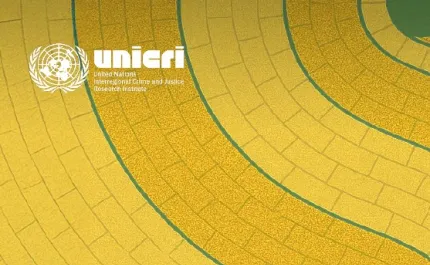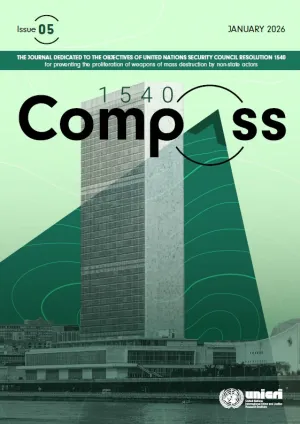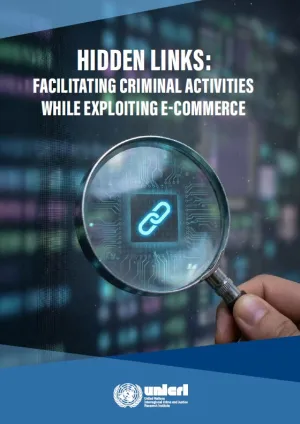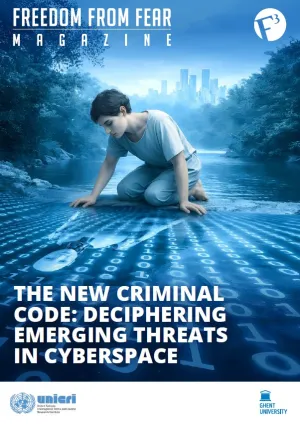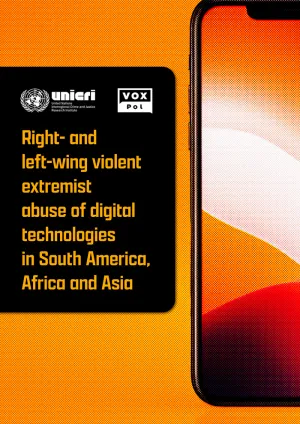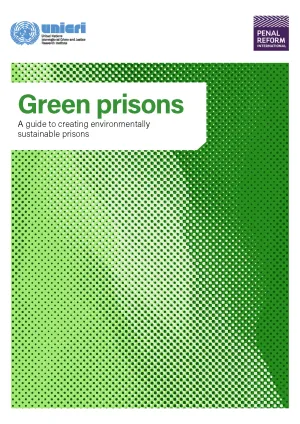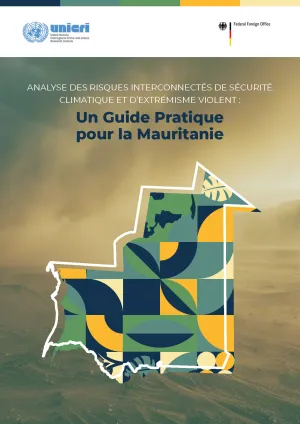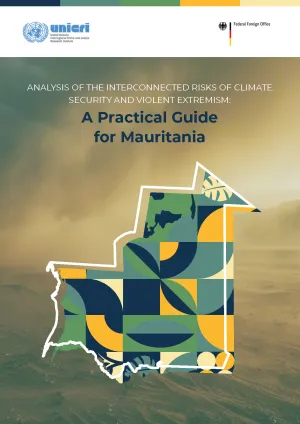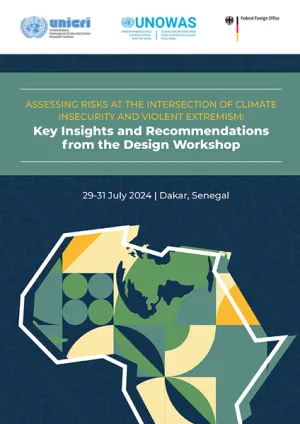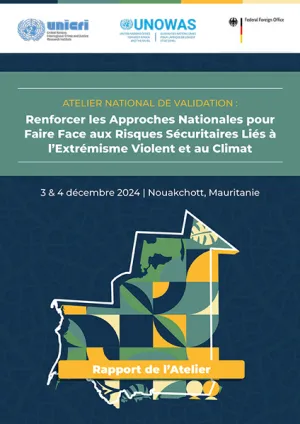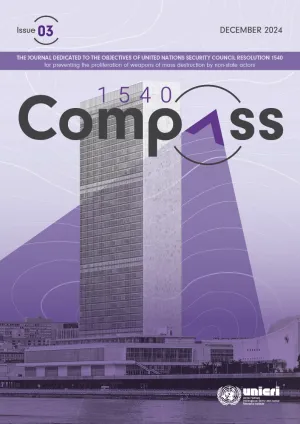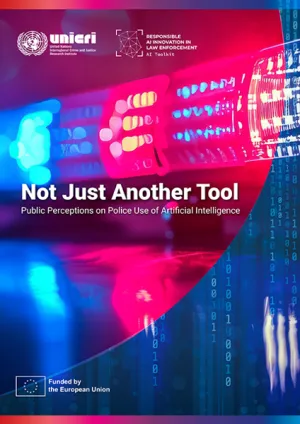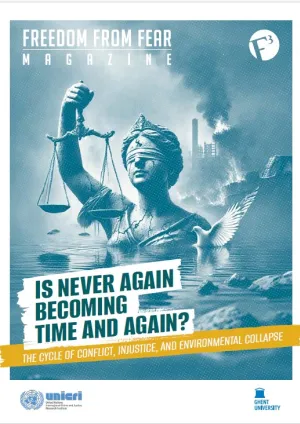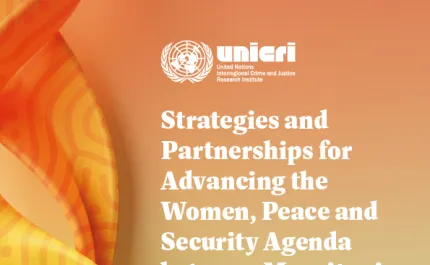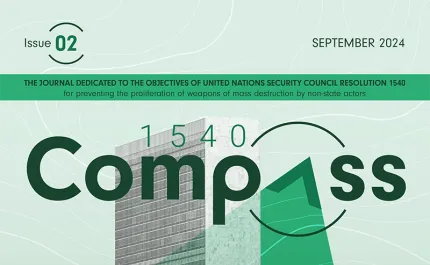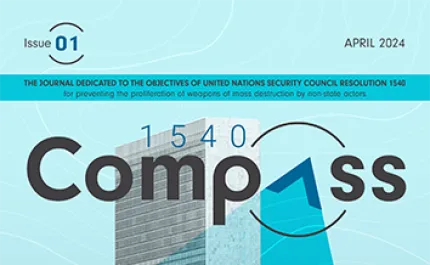The world we live in today is increasingly complex and volatile, shaped by evolving threats and rapid technological advancement. Criminal actors respond rapidly to these changes, posing growing challenges to those tasked with investigating and prosecuting crime. Among the most difficult cases are those involving the deliberate use of hazardous chemical and biological (CB) agents to harm people, animals, the environment, or disrupt societal functions.
Effective responses to such threats require strong coordination across agencies and disciplines. The chemical, biological, radiological and nuclear (CBRN) field is characterised by technical procedures, scientific terminology, and specialised legal frameworks. Prosecutors and investigators need not only an understanding of these complexities, but also the appropriate tools and expertise to enable effective legal action.
UNICRI, in close collaboration with international partners and stakeholders, identified the need to advance guidance in this area. To this end, the Institute brought together regional and international CBRN experts, senior prosecutors, and legal practitioners to develop the first edition of the Prosecutors Guide to Chemical and Biological Crimes.
The Guide is designed to assist prosecutors, law enforcement, and relevant agencies in the investigation and prosecution of crimes involving the deliberate production, stockpiling, transfer, or use of chemical and biological agents. It offers non-binding, high-level guidance on key legal and procedural considerations and their implications for prosecution. It also lays the groundwork for follow-up initiatives, including practical training and capacity building.
We are grateful to the European Commission for supporting the development of this Guide under the European Union Chemical, Biological, Radiological and Nuclear Centres of Excellence Initiative (EU CBRN CoE). The initiative arose from two projects in Southeast and Eastern Europe aimed at enhancing the forensic capacities of partner countries.
At UNICRI, we are committed to addressing the needs and priorities of our Member States through sustainable programmes that integrate theoretical knowledge with practical tools, including tailored training, educational videos, and e-learning platforms.
We trust that this Guide will help strengthen the knowledge, institutional frameworks, and legal mechanisms necessary to support prosecutors and investigators in their pursuit of justice and accountability.
Read the Guide in different languages:
دليل المدعي العام لجرائم الكيمياء والأحياء المجرمة
(ARA)
A Prosecutor's Guide to Chemical and Biological Crimes
(EN)
Руководство для прокуроров по преступлениям, связанным с применениемхимических и биологических веществ
(RUS)
The Way Forward: From CBRN Crime Scene to Courtroom: A New Standard for Legal Preparedness
Building on the Prosecutors Guide on Chemical and Biological Crimes and the Prosecutors Guide on Radiological and Nuclear Crimes, a significant step forward was taken in 2024 with the launch of the From CBRN Crime Scene to Courtroom initiative. Fully funded by the European Commission’s Foreign Policy Instruments and developed under the EU CBRN Risk Mitigation Centres of Excellence (CoE) Initiative, this pilot programme is helping set new benchmarks in both forensic practices and judicial preparedness.
A key innovation is the programme’s emphasis on the admissibility of forensic evidence in court - an aspect often overlooked in traditional CBRN capacity-building efforts. Training addresses core legal and procedural issues such as expert witness preparation, evidentiary reporting, forensic expert credibility, and maintaining the chain of custody. These elements are essential to ensuring that investigative findings can withstand legal scrutiny.
The training is structured around five interlinked modules:
Table-Top Exercise – Introduces foundational CBRN concepts, promotes inter-agency coordination, and identifies key needs and priorities.
CBRN Criminalisation Workshop – Explores international legal frameworks for defining and prosecuting CBRN-related offences.
Building a Case for Prosecution – Provides tools to transform forensic results into effective legal arguments.
Mock Trial / Moot Court – Tests participants’ knowledge through realistic simulations using adapted national legislation.
Train-the-Trainer – Ensures sustainability by empowering national actors to deliver future training.
All modules have been successfully implemented in Moldova and Ukraine, confirming the programme’s feasibility and impact. As of early 2025, fourteen countries have requested to adopt the full package, officially titled Strengthening the CBRN Investigation, Prosecution, and Adjudication Capabilities.
From September 2025, the programme will shift to a regional delivery model, focusing on the Balkans and Gulf countries, to maximise outreach and relevance.
This initiative has been greatly enhanced by the participation of internationally recognised prosecutors, judges, law enforcement officers, and forensic experts, whose practical knowledge has been instrumental in translating complex scientific material into actionable legal strategies.
